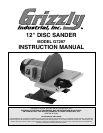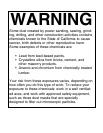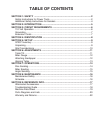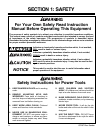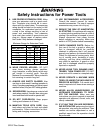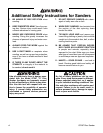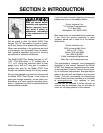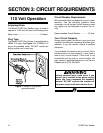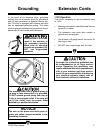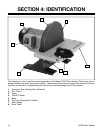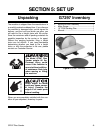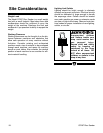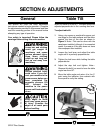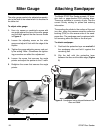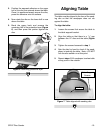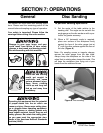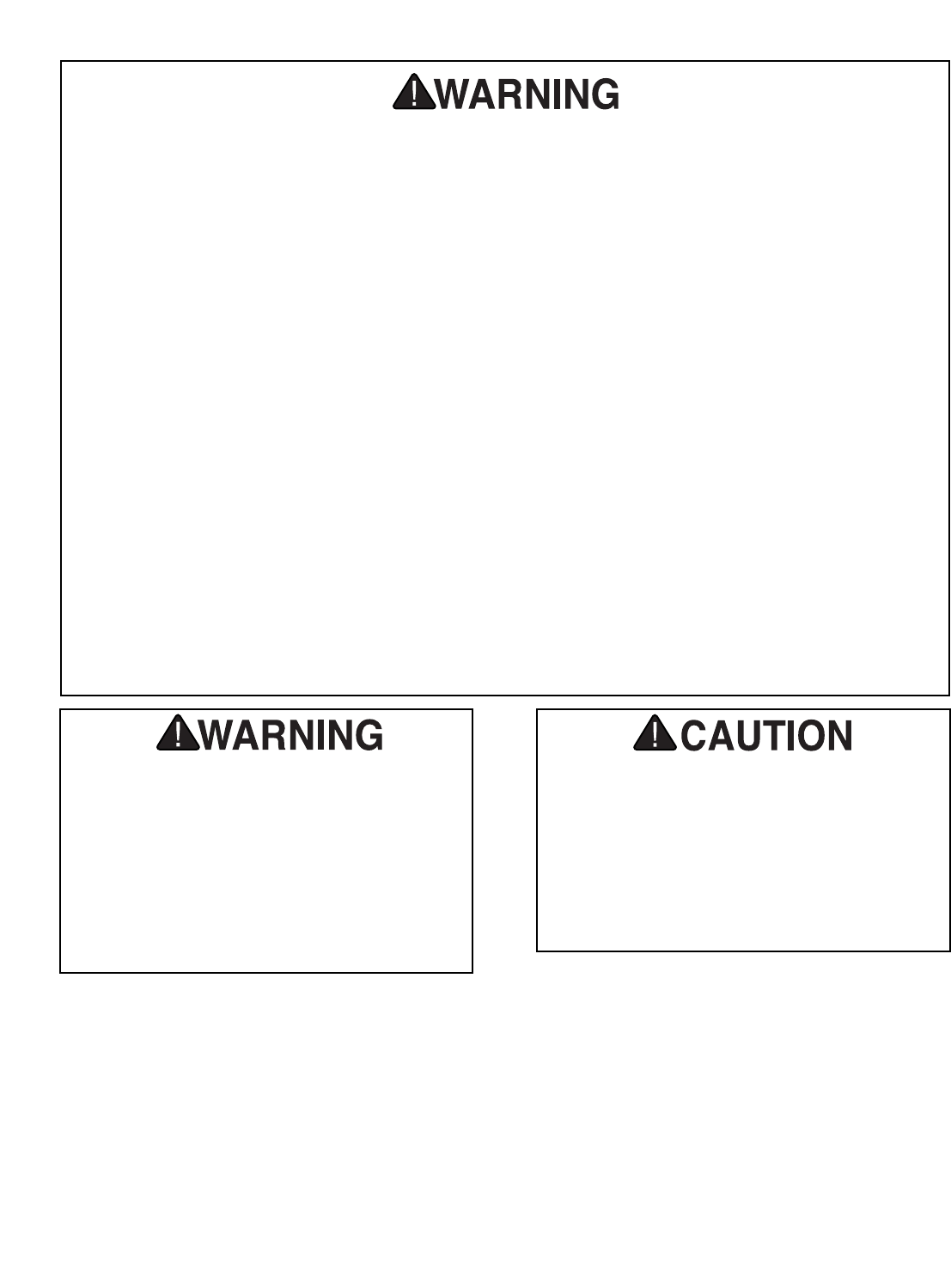
-4-
G7297 Disc Sander
1. BE AWARE OF DISC ROTATION when
sanding.
2. KEEP FINGERTIPS AWAY from the mov-
ing disc. Serious injury could result if skin
contacts abrasives or moving parts.
3. NEVER USE EXCESSIVE FORCE when
sanding. Doing this greatly increases the
chances of personal injury and motor over-
load.
4. ALWAYS FEED THE WORK against the
direction of rotation.
5. USE A DUST MASK or respirator when
sanding, as well as eye and ear protection,
even if you have a reliable method of dust
collection.
6. IF THERE IS ANY DOUBT ABOUT THE
STABILITY or integrity of the material to
be sanded, do not sand it.
7. DO NOT OPERATE SANDER with a dam-
aged or badly worn disc or belt.
8. WHEN DISC SANDING, feed material into
the portion of the disc spinning down
toward the table.
9. TIE BACK LONG HAIR and remove any
loose-fitting clothing or jewelry that could be
caught up in the sander’s disc, belt, or other
moving machine parts.
10. BE AWARE THAT CERTAIN WOODS
MAY CAUSE AN ALLERGIC REACTION
in people and animals, especially when
exposed to fine dust. Make sure you know
what type of wood dust you will be exposed
to and always wear an approved respirator.
11. HABITS — GOOD OR BAD — are hard to
break. Develop good habits and safety will
become second nature to you.
No list of safety guidelines can be com-
plete. Every shop environment is different.
Always consider safety first, as it applies
to your individual working conditions. Use
this and other machinery with caution and
respect. Failure to do so could result in
serious personal injury, damage to equip-
ment or poor work results.
Like all power tools, there is danger asso-
ciated with the Model G7297 12" Disc
Sander. Accidents are frequently caused
by lack of familiarity or failure to pay atten-
tion. Use this tool with respect and cau-
tion to lessen the possibility of operator
injury. If normal safety precautions are
overlooked or ignored, serious personal
injury may occur.
Additional Safety Instructions for Sanders



